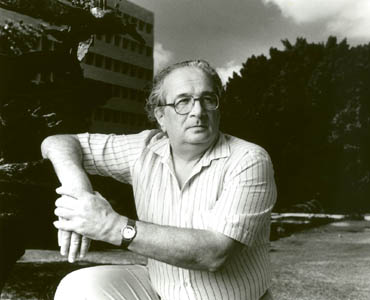How does a complex, three dimensional embryo develop from a single cell without major mistakes occurring in the process? What causes tissues to grow uncontrollably in certain types of cancer? These are the kinds of questions tackled by the Center of Excellence for the study of genes headed by Prof. Peter Lonai
The Center takes advantage of the Weizmann Institute's expertise in the technique known as gene targeting, in which specific defects are introduced into genes in order to clarify their function. The method has been hailed as one of the most important advances in molecular genetics and is expected to have major implications for medical research.
Lonai, who played a leading role in introducing gene targeting to Israel, uses the technique to clarify embryonic development. The commonly held theory is that this process is entirely predetermined by a genetic code or DNA program. Lonai disagrees.
"A living organism does not take shape like a fighter plane, in which the instructions for every single component are programmed in advance. In living organisms, messages are constantly being sent back and forth between cells, with each cell helping to define what will happen to the others," says Lonai.
"We know a lot about embryonic development in flies and worms, but very little about how this process occurs in mammals. In fact, we don't usually give much thought to this crucial stage of life. It is only when we notice a mutation, like a little finger twice as long as it should be, that we start to appreciate how amazing it is that the body's countless components usually come out just right."
Gene targeting makes it possible to perform sophisticated studies in mammals that until now were possible only with much simpler organisms. "It will soon become the primary method for analyzing cloned genes," says Lonai.
Since breakdowns in intracellular signals controlling the growth of tissues are known to cause certain types of malignancies, this study also is expected markedly to advance cancer research.
The new Center of Excellence, which provides expertise in gene targeting to scientists throughout the country, includes four research groups -- three led by Weizmann Institute scientists and one by a Bar-Ilan University researcher. In addition to heading the new Center, Lonai, a member of the Immunology Department, is in charge of the three Institute teams. The other two are led by Profs. David Givol and Yosef Yarden of the Molecular Cell Biology Department.
